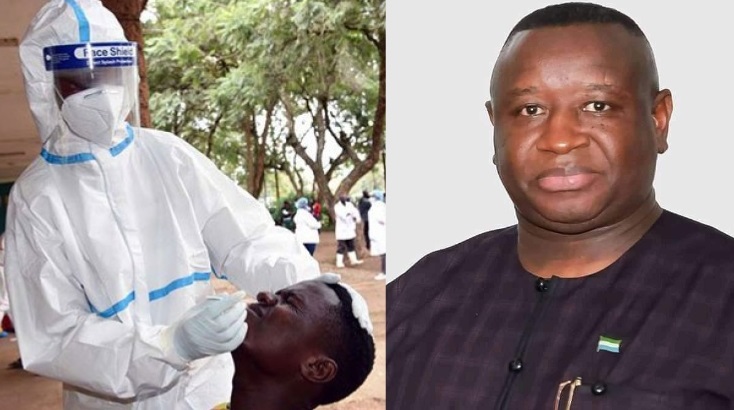Sierra Leone has recorded one of its highest daily new cases of COVID-19 infection since the Global pandemic was announced in February 2020.
This was on Saturday 5th June 2021 when the government said that 20 new cases of COVID-19 infection were recorded, bringing the total number of COVID-19 cases in Sierra Leone to 4,188.
Meanwhile, the World Health Organisation has also listed Sierra Leone as one of the country’s where cases have increased “abruptly”.
With the rainy season now in full swing, it is expected that the number of COVID-19 cases will rise significantly.
It is not clear whether all 20 new cases are of the Indian variant now dubbed by WHO as the Delta-variant.
Over 50% of the total number of cases in Sierra Leone are in the capital Freetown, with 2,993, followed by Kenema and Bo with 133 and 130 respectively.
So far the total number of deaths from Covid remains relatively low at 79, but there are fears the real number could be a lot more as testing across the population remains very low.
This latest upsurge in new cases in Sierra Leone comes as the World Health Organization (WHO) describes the threat of a third wave of the COVID-19 pandemic in African as real and rising, urging countries to brace up and strengthen their health systems by investing in critical care capacities.
Speaking at a press conference in the last few days, WHO Regional Director for Africa, Dr Matshidiso Moeti said: “The threat of a third wave in Africa is real and rising”.
“As we are expecting a surge, it is important to strengthen health systems now to save lives. Public health measures remain important to prevent infections that can later become hospitalisations.
“In the past week, 74,000 new COVID-19 cases were reported – an increase of 9 percent over the previous week. We are seeing rising cases in South Africa and Uganda, and cases have increased abruptly in 8 countries, including Sierra Leone, Guinea-Bissau and Nigeria.
“We have seen how COVID-19 can quickly overwhelm health systems that are not equipped to manage a surge in cases, so critical care capacities remain vitally important.” Moeti is warning.











